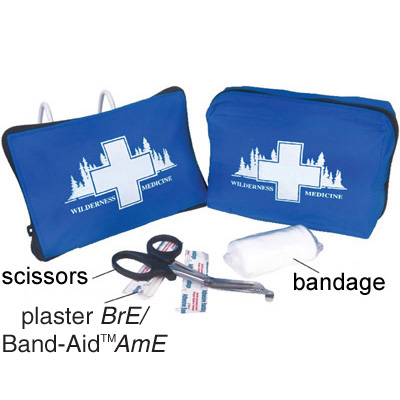From Longman Dictionary of Contemporary Englishbandageban‧dage1 /ˈbændɪdʒ/ ●●○ noun [countable]  MDa narrow piece of cloth that you tie around a wound or around a part of the body that has been injured
MDa narrow piece of cloth that you tie around a wound or around a part of the body that has been injured
 MDa narrow piece of cloth that you tie around a wound or around a part of the body that has been injured
MDa narrow piece of cloth that you tie around a wound or around a part of the body that has been injuredExamples from the Corpus
bandage• About an hour later, he returned with a bandage around his arm.• Chris bumped his head again while snorkelling and now has rather an impressive bandage!• Eyes wrapped in bandages in the cataract ward, the world as hushed and black as the deepest for ever.• He looked up at her through the hair falling over his forehead, black against the bandages.• If blood keeps coming through the bandage, do not remove it; simply put another bandage on top.• Next, cancer samples were hidden under bandages on a volunteer, and Pickel still reported an almost perfect record for George.bandagebandage2 (also bandage up) verb [transitive] MHMDto tie or cover a part of the body with a bandage The nurse bandaged up his sprained ankle.→ See Verb tableExamples from the Corpus
bandage• Anushkia Smyslov had bandaged Alex Bannen's head, and the physicist was propped in a sitting position against a workstation.• A paramedic bandaged his foot.• Hospital officials cleaned and bandaged his wound and sent him home with a pair of crutches, Ross said.• Converse had salved his ear in vaseline and bandaged it with cotton and gauze.• He bandaged it with the remaining strip of cloth.Origin bandage1 (1500-1600) French bande “flat strip”; → BAND1 
